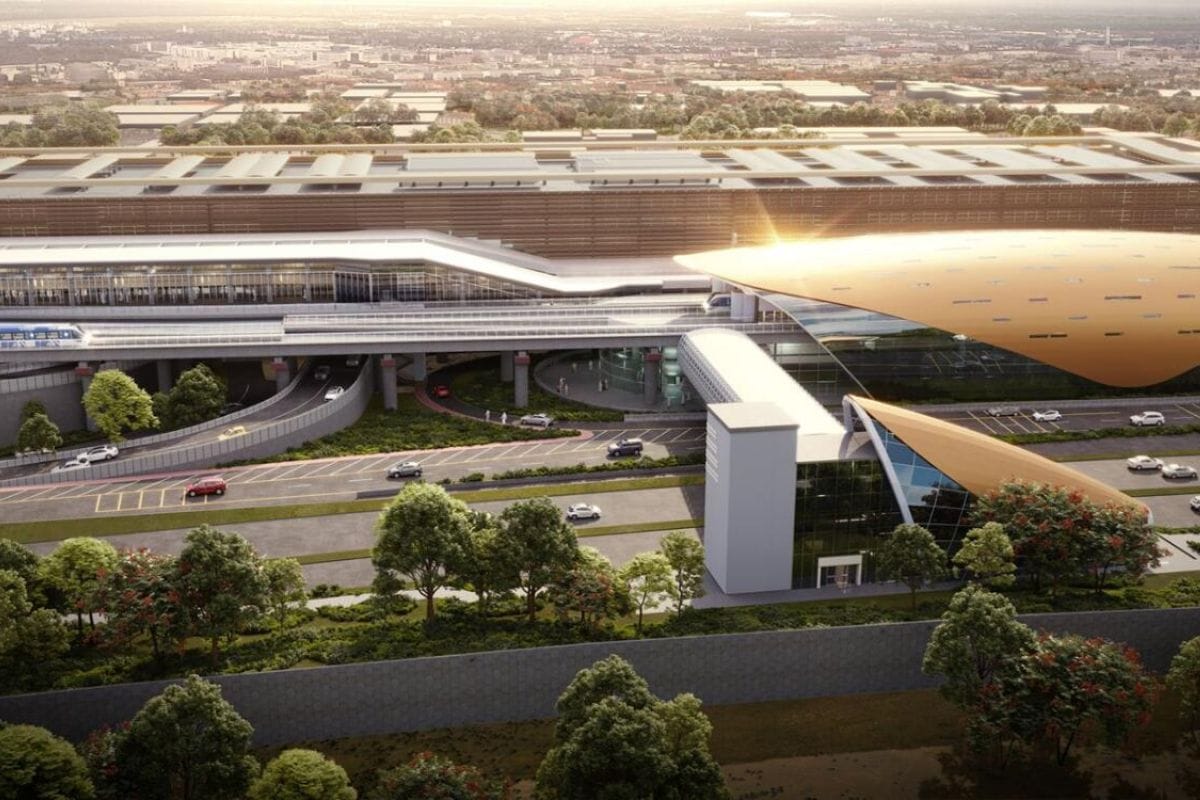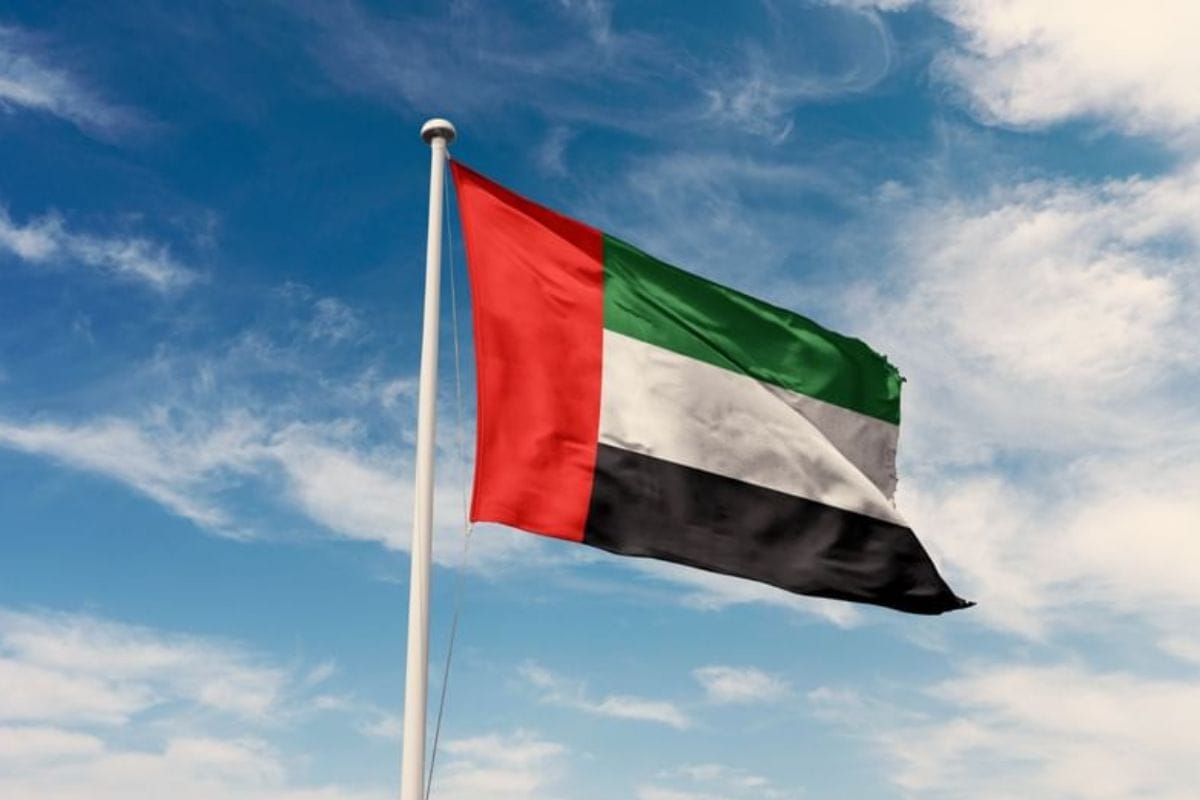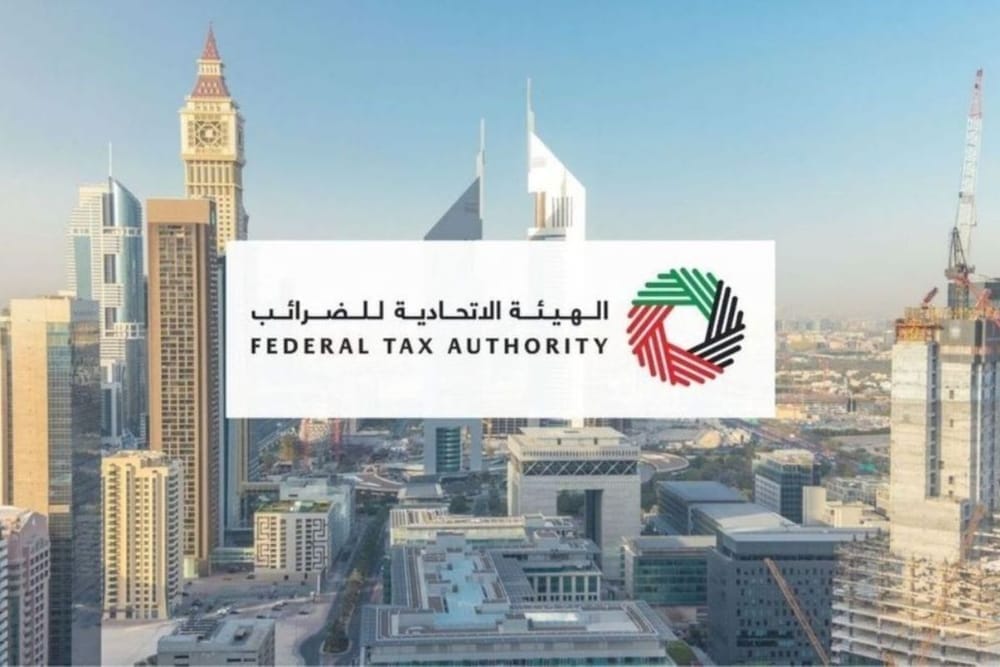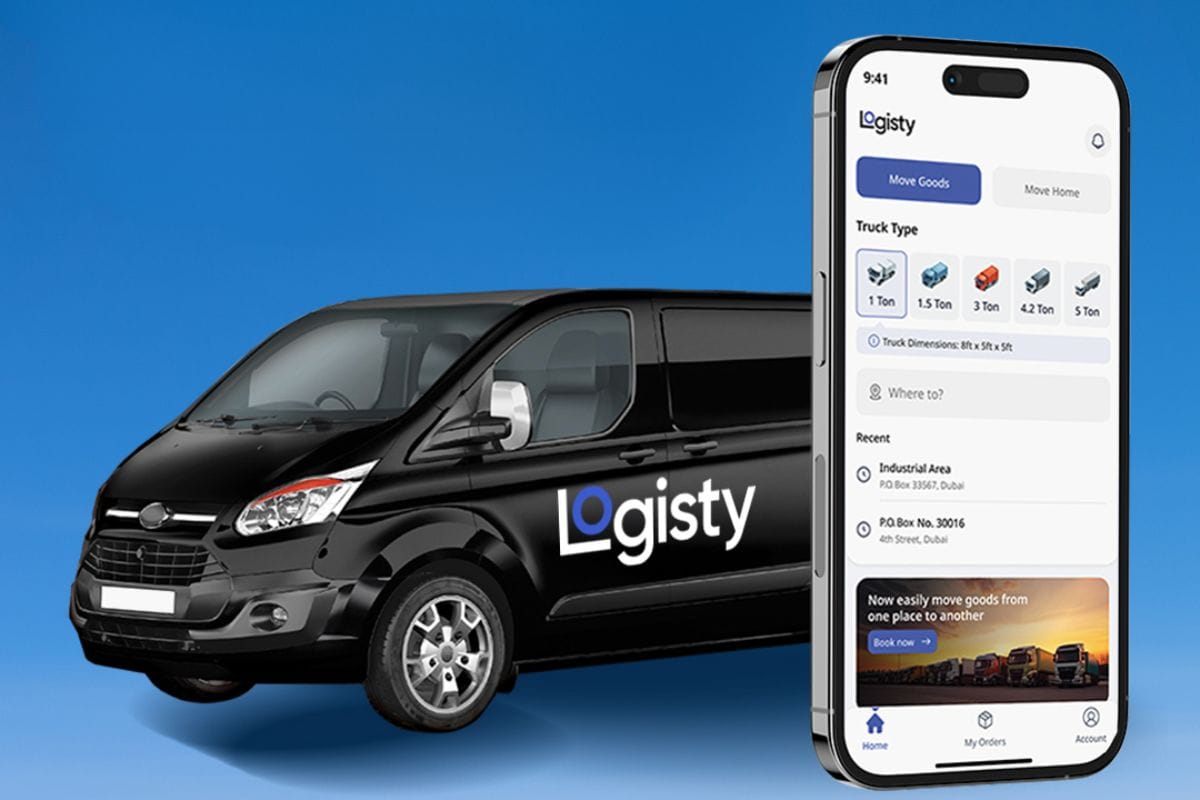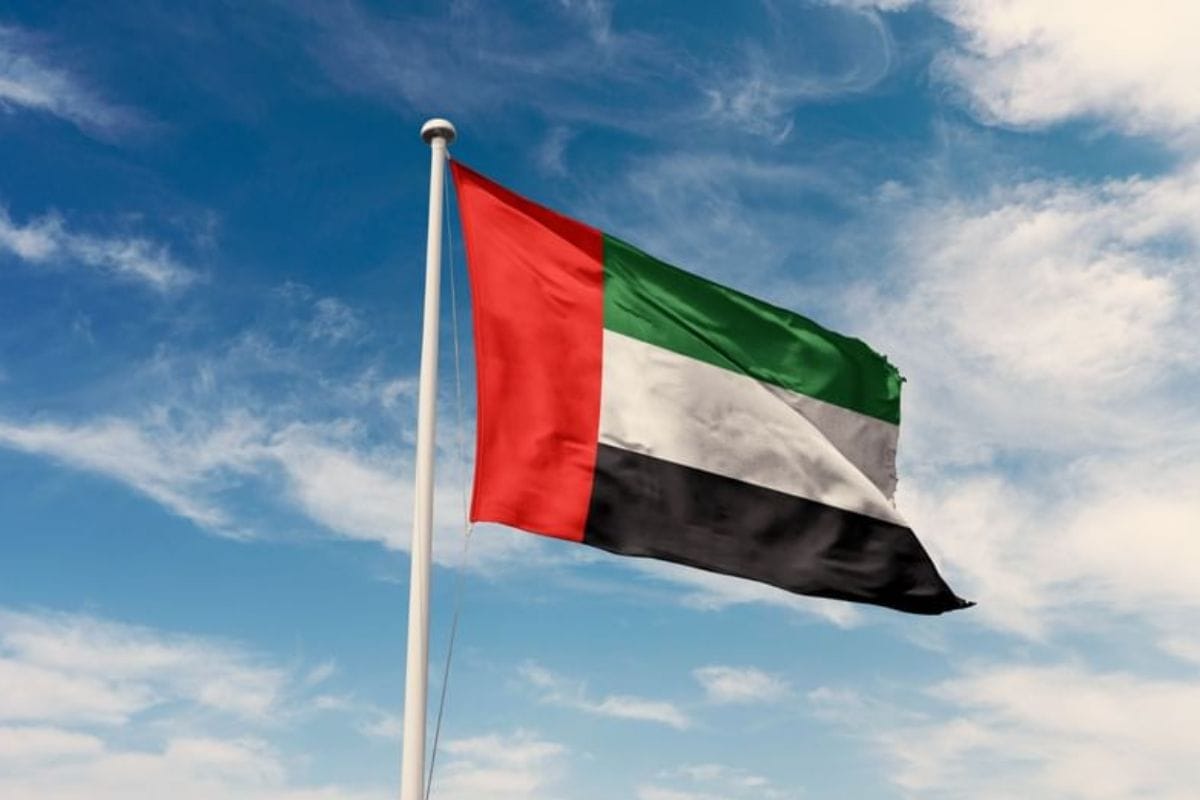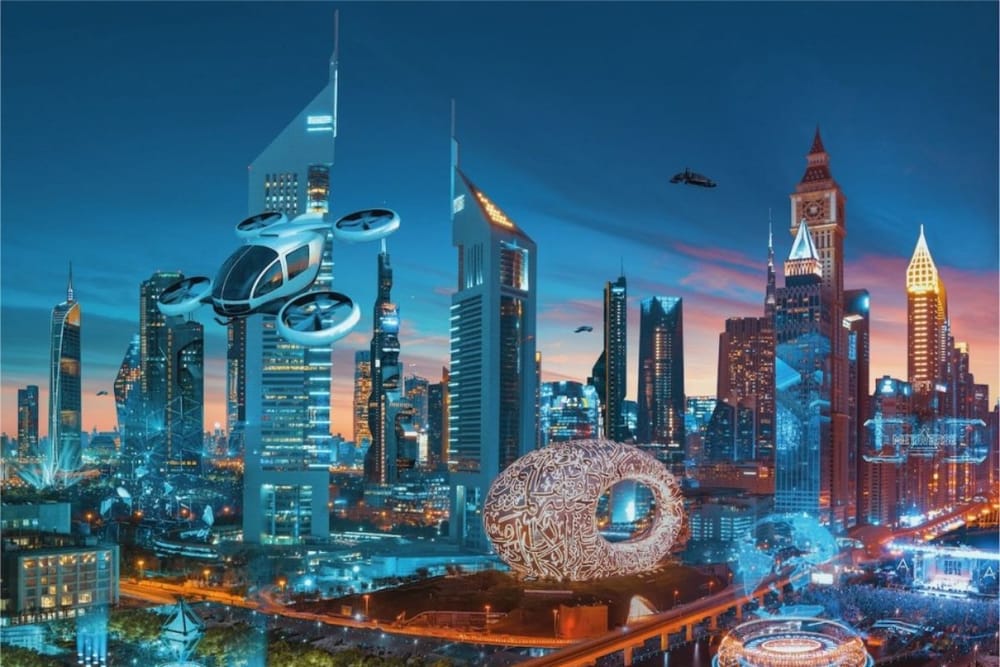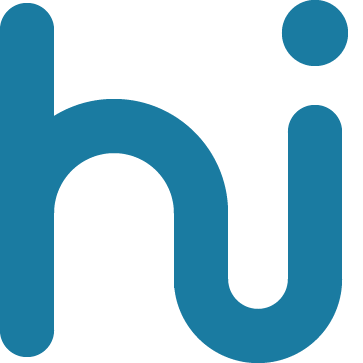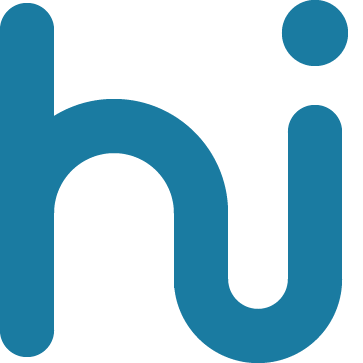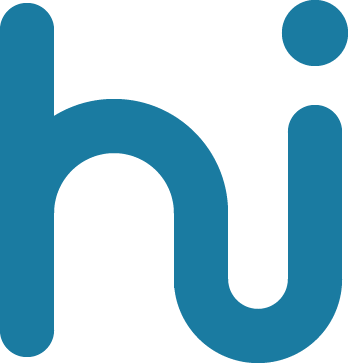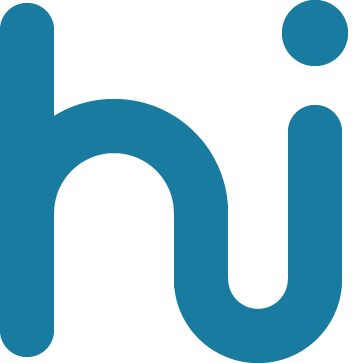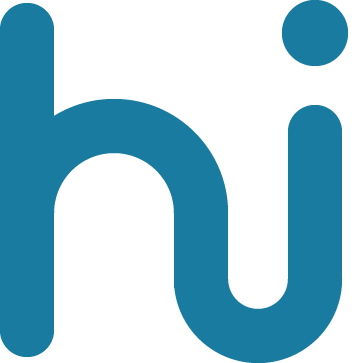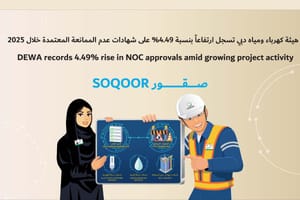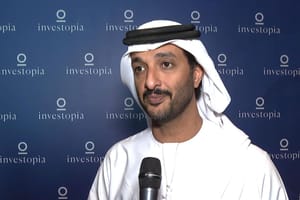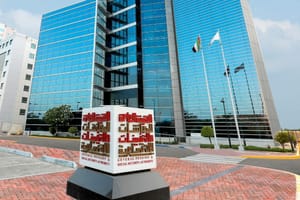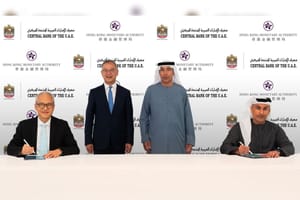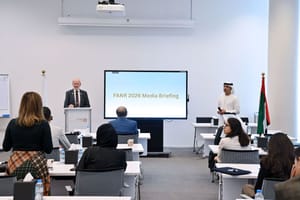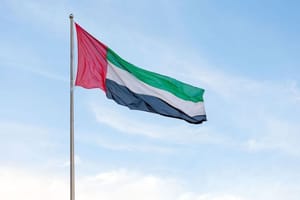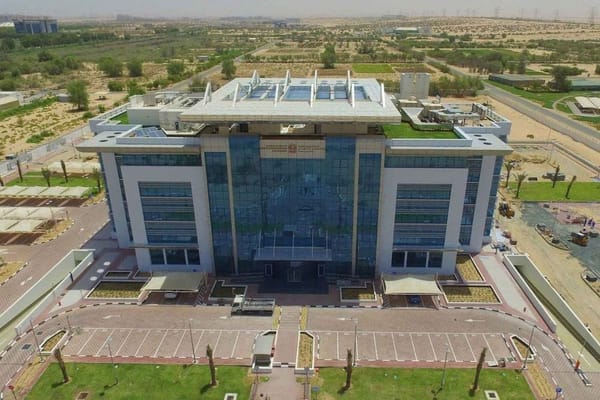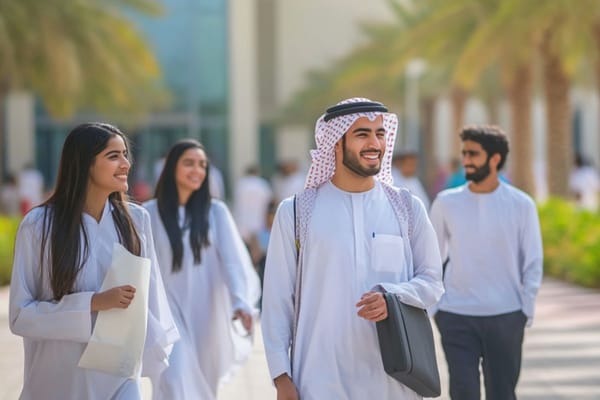What made 2024 a landmark year for Dubai? Was it the groundbreaking infrastructure projects reshaping the cityscape, the new laws paving the way for a more dynamic economy, or the record-breaking IPOs drawing global attention? Perhaps it was all of these and more.
As Dubai continues to set benchmarks for innovation and growth, 2024 stands out as a year of transformation, sustainability, and ambition. From futuristic urban developments and strategic legislative shifts to corporate milestones that fueled investor confidence, Dubai has cemented its reputation as a global powerhouse.
Here's what made 2024 an unforgettable year for the emirate.
UAE Companies That Went Public in 2024
In 2024, the United Arab Emirates (UAE) solidified its position as a leading hub for initial public offerings (IPOs) in the Middle East, with several significant listings across diverse sectors. These IPOs not only attracted substantial investments but also underscored the UAE's dynamic economic landscape.
Parkin - $429 million

Parkin Company P.J.S.C. made headlines as the first IPO of 2024 on the Dubai Financial Market (DFM), raising AED 1,574.37 million and achieving a remarkable market capitalization of AED 6.30 billion. The exclusive operator of Dubai's public parking, Parkin's offering was oversubscribed by 165 times, amassing a record-breaking AED 259 billion in demand.
This milestone highlights the success of Dubai’s capital markets development strategy, showcasing the city’s commitment to privatization and economic growth. Parkin’s innovative approach to mobility solutions and its alignment with Dubai’s expansion and sustainability goals have positioned it as a key player in the Emirate’s transport ecosystem, drawing strong investor confidence regionally and internationally.
Spinneys - $375 Million

Spinneys' successful IPO on the Dubai Financial Market (DFM) highlights its position as a leading premium grocery retailer in the UAE and Oman. The offering, which raised AED 1.38 billion at AED 1.53 per share, attracted overwhelming demand, with subscriptions exceeding 64 times and a market capitalization of AED 5.51 billion.
This milestone underscores Spinneys’ ambitious growth strategy, including the launch of its first stores in Saudi Arabia and innovative concepts like “The Kitchen, by Spinneys” and “Spinneys Swift” hyperlocal e-commerce. The listing reflects growing confidence in Dubai’s capital markets and aligns with the emirate’s vision of economic diversification. The DFM’s strong performance, with a 4.59% increase in its General Index and AED 36.4 billion raised through IPOs since 2022, demonstrates its pivotal role in fostering growth and offering diverse investment opportunities in the region.
Alef Education - $514 Million

Alef Education made history in 2024 by becoming the first EdTech company in the UAE to list on the Abu Dhabi Securities Exchange (ADX). The IPO, priced at AED 1.35 per share, achieved a remarkable market capitalization of AED 9.45 billion (US$2.57 billion) and raised AED 1.89 billion (US$514 million) in proceeds.
Oversubscribed by an impressive 39 times, the offering drew AED 74 billion (US$20 billion) in gross demand from local and international investors, underscoring confidence in Alef’s innovative AI-driven learning solutions. The company, which serves 40–50% of the UAE’s private school market, is poised to capitalize on the region's growing education investments. With a dividend policy offering a 7.1% annualized yield, Alef promises strong returns for its shareholders.
Talabat - $2 Billion

Talabat Holding plc, the leading on-demand food, grocery, and retail platform in the MENA region, marked a historic milestone with its successful listing on the Dubai Financial Market (DFM) under the ticker "TALABAT." Raising AED 7.5 billion (USD 2 billion), this IPO became the largest global technology IPO of 2024 and the biggest in the GCC.
With strong interest from local, regional, and international investors, Talabat's offering is a testament to Dubai’s thriving financial ecosystem. The listing, the third of its kind in 2024, underscores Dubai’s growing role as a global financial hub.
LuLu Retail - $1.72 Billion

Lulu Retail Holdings PLC made headlines with its record-breaking IPO on the Abu Dhabi Securities Exchange (ADX), solidifying its position as the largest UAE IPO of 2024. Priced at AED 2.04 per share, the offering raised AED 6.32 billion ($1.72 billion) in proceeds, while attracting an unprecedented AED 135 billion ($37 billion) in demand—oversubscribed more than 25 times. This landmark event also saw over 82,000 retail investors participate, setting a decade-high record for UAE IPOs.
Key Initiatives Carried Out by DET, Dubai SME in 2024
Dubai's Department of Economy and Tourism (DET) and Dubai SME unveiled a series of transformative initiatives under the ambitious Dubai Economic Agenda D33. From empowering retirees with entrepreneurial opportunities to revolutionizing e-commerce and fostering SME growth, these initiatives reflect Dubai’s commitment to nurturing talent and innovation across all sectors. By integrating strategic partnerships, cutting-edge digital tools, and visionary leadership, DET and Dubai SME are shaping an ecosystem that positions the emirate as a global hub for business excellence.
Dubai Retiree Projects Support

Under the visionary Dubai Social Agenda 33, Dubai SME launched Retiree Projects Support programme to empower Emirati retirees and employees nearing retirement to thrive in entrepreneurship. Aimed at harnessing their expertise, the initiative offers priority access to government projects, financing, and a five-year exemption from service fees through Dubai SME. Retirees are also provided with consultations and a supportive council to ensure financial and social stability.
By engaging retirees in small and medium enterprises (SMEs), the programme fosters economic diversification and sustainability. This transformative initiative not only celebrates the wealth of experience retirees bring but also positions them as vital contributors to Dubai’s development and innovation-driven future.
Dubai SME Achieves 164% Growth in H1 2024
Dubai SME’s stellar performance in the first half of 2024 underscores its unwavering commitment to fostering entrepreneurship. With the backing of the ambitious Dubai Economic Agenda, D33, the establishment saw a remarkable 164.3% increase in training beneficiaries, mentoring 1,373 Emirati entrepreneurs—a leap of 190.3%—and facilitating 1,986 new enterprises.
Milestones like AED395.4 million in member contracts, doubled financial support for SMEs, and aid for rain-affected businesses highlight its impact. Guided by His Highness Sheikh Mohammed bin Rashid Al Maktoum’s vision, Dubai SME is shaping a vibrant, innovation-driven economic future, positioning the emirate as a global entrepreneurial hub.
DET X noon

Dubai’s Department of Economy and Tourism (DET) has joined forces with noon to revolutionize e-commerce for small and medium enterprises (SMEs) through the Dubai Traders initiative. Anchored in the Dubai Economic Agenda, D33, this programme equips SMEs with digital tools, advertising credits, and rapid delivery options via noon’s platform. Emirati sellers will receive specialized support through noon’s Mahali programme, fostering inclusivity.
Spearheaded by leaders like Helal Saeed Almarri, Director-General of DET, and Mohamed Alabbar, Founder of noon, this partnership highlights Dubai’s commitment to driving innovation and entrepreneurship. By bridging government and private sector expertise, Dubai paves the way for SMEs to thrive in the digital age.
DET x Amazon Accelerator

Dubai’s Department of Economy and Tourism (DET) has teamed up with Amazon UAE to launch the groundbreaking ‘DET x Amazon Accelerator,’ a strategic initiative designed to propel small and medium enterprises (SMEs) into the digital age. Part of the ambitious Dubai Economic Agenda D33, this program offers SMEs access to global expertise, digital tools, and marketing support, helping them expand internationally.
With Amazon’s 25 years of e-commerce excellence and Dubai’s vision to foster entrepreneurship, the initiative aims to host products from 100,000 SMEs on Amazon.ae by 2026. This collaboration reflects Dubai’s commitment to empowering businesses to thrive in the digital economy while cementing its status as a global business hub.
New Rules Implemented in 2024
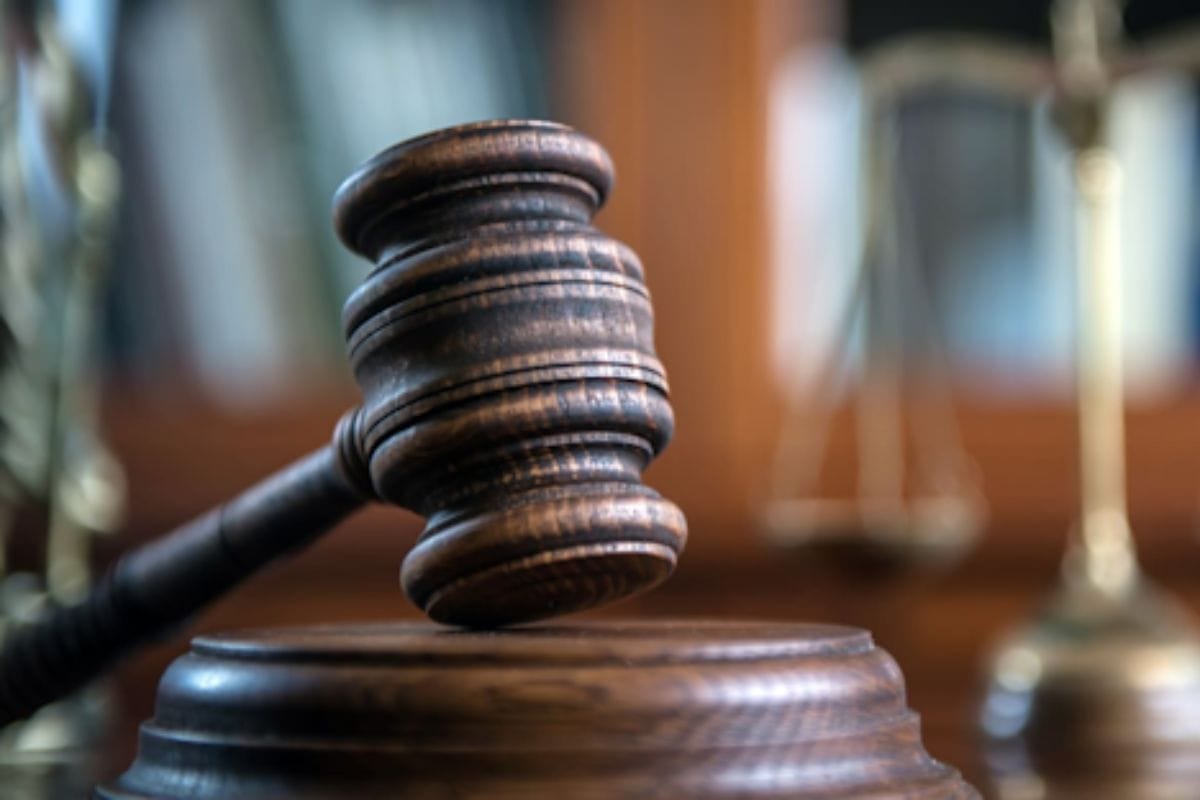
In 2024, Dubai introduced a range of transformative regulations designed to enhance sustainability, improve safety, and promote social well-being. From the ban on single-use plastics to stricter domestic violence laws and traffic safety overhauls, these changes reflect the Dubai's commitment to a progressive future.
Single-use Plastic Ban
Dubai implemented a landmark ban on single-use plastic bags starting January 1, 2024, to combat environmental pollution and promote sustainability. The federal law prohibits the import, production, and circulation of single-use plastic shopping bags, with a broader ban on single-use products, including foam cups, plates, and cutlery, set for January 1, 2026.
Violations of the ban in Dubai incur fines starting at AED 200, doubling for repeated offenses up to a maximum of AED 2,000. Exemptions include thin bags for fresh produce and bags made from recycled materials. The law also covers free zones and mandates eco-friendly alternatives.
Tax on Foreign Banks
Dubai imposed 20% tax on foreign banks’ income aiming to harmonize the older Emirate-level tax with the UAE’s 9% Federal Corporate Tax, reducing double taxation. Effective March 8, 2024, the law exempts the Dubai International Financial Centre but applies to all other international banks in the emirate. While some banks may absorb the tax to remain competitive, others could pass the cost to customers by increasing fees or interest rates.
Single-use Bag Ban
Starting June 1, 2024, Dubai implemented a citywide ban on all single-use bags, including plastic, paper, and biodegradable options, due to their environmental impact. While stores will no longer provide free alternatives, customers are encouraged to bring their reusable bags. The ban also targets biodegradable bags, as they require specialized recycling stations and can break down into harmful microplastics if left in landfills.
Exemptions include bags for specific items like bread, trash, and laundry. Non-compliance will result in fines starting at Dh200, with repeated offenses leading to penalties of up to Dh2,000. The Dubai Municipality has released an online guide to assist businesses and consumers with sustainable alternatives and to ensure smooth implementation of the policy.
Resolution on Abortion
In a landmark legal reform, the UAE has expanded the conditions under which abortions can be performed, focusing on women’s health and rights. A cabinet resolution permits abortion in cases of rape, incest, or at the request of spouses, subject to committee approval.
Previously, abortions were only allowed if the pregnancy endangered the woman's life or involved fetal deformities. This reform aligns with international standards and addresses concerns about unsafe, illegal abortions. To ensure responsible implementation, abortions must be performed within 120 days of pregnancy, and women must undergo medical and social counseling. The law applies to both Emiratis and expatriates residing in the UAE for at least one year.
Telemarketing Restrictions
Starting August 2024, the UAE enforced stricter regulations on telemarketing, aiming to protect consumer privacy. Calls are allowed only between 9 am and 6 pm, and companies must obtain consumer consent before initiating marketing. If a consumer rejects an offer, the telemarketer cannot contact them again that day.
Violations could lead to fines up to Dh150,000 and other penalties, including business license revocation. Firms must use registered numbers, refrain from pressuring customers, and avoid deceptive practices. Customers can opt out of marketing calls via the Do Not Call Registry (DNCR) and file complaints against companies breaching the rules. These measures aim to reduce unwanted calls and enhance consumer rights.
Strengthening Law Enforcement
Dubai introduced Law No. (19) aiming to enhance law enforcement and foster community involvement. Enacted by His Highness Sheikh Mohammed bin Rashid Al Maktoum, Vice President and Prime Minister of the UAE and Ruler of Dubai, the law authorizes individuals, including government employees and qualified private contractors, to enforce laws within the emirate. It also empowers community members meeting specific criteria, such as age and technological proficiency, to participate in law enforcement efforts.
The law replaces Law No. (8) of 2016 and establishes clear guidelines for granting authority, responsibilities, and the evaluation of officers. This legislation seeks to create stronger public-private partnerships and improve the management of public facilities, ensuring a more collaborative approach to maintaining legal standards in Dubai.
Stricter Domestic Violence Laws
The UAE has enacted Federal Decree-Law No. 13 of 2024 to address domestic violence more effectively, introducing stricter penalties for offenders. Those found guilty of abuse, including physical, psychological, sexual, and financial violence, face imprisonment and fines up to AED 50,000. Additional penalties apply for abuse against vulnerable individuals like children, the elderly, and pregnant women.
The law also introduces mandatory reporting of incidents, with fines for failure to report or filing false reports. Victims can obtain protection orders, which can be extended, and violators of these orders will face imprisonment and escalating fines. The law ensures victims’ safety by requiring their full consent for reconciliation with abusers and mandates confidentiality during reporting.
Traffic Law Overhaul
The UAE Government introduced a federal decree-law aimed at enhancing road safety and modernizing traffic regulations. Key updates include the promotion of self-driving vehicles, electric cars, and personal mobility devices. A Cabinet resolution will define inspection, licensing, and renewal processes for autonomous vehicles. Additionally, a "Federal Traffic Council" will oversee regulations and operations.
The law establishes stricter rules, such as prohibiting pedestrian crossings on roads with speed limits over 80 km/h, and introduces severe penalties for violations, including fines and imprisonment for DUI offenses. The law also sets a minimum age of 17 for driving licenses and requires qualified trainers for driving education.
Phased Lifting of Drone Restrictions
The UAE Ministry of Interior, alongside several agencies, announced a phased lifting of restrictions on drone operations, starting on November 25, 2024. A key development is the launch of a unified national platform to streamline drone registration and regulate usage, prioritizing airspace safety and security. Initially serving government entities and businesses for activities like research and testing, the platform will eventually extend to amateur operators.
Drone operators must comply with licensing requirements through the UAE Drones app or website and equip drones with a remote identification system.
Faster Resolution of Domestic Worker Disputes
The UAE Ministry of Human Resources and Emiratisation (Mohre) has introduced new regulations to expedite dispute resolution between domestic workers and employers. Under the new law, cases involving disputes under Dh50,000 will be directly handled by Mohre, bypassing initial court referrals. If a settlement is not reached within the designated timeframe, the case will be referred to the Court of First Instance instead of the Court of Appeals, speeding up the process.
This shift aims to reduce legal delays, benefiting both parties by providing faster resolutions and minimizing the financial burden on domestic workers. With Mohre’s expanded powers, workers now have a more accessible platform to address grievances without the fear of costly legal proceedings.
Competition Law
The UAE introduced Federal Decree-Law No. 36 to promote fair competition and curb monopolistic practices. The law ensures that economic activities are driven by market forces while protecting trade, development, and consumer interests. Companies are prohibited from using extremely low prices to drive competitors out and must adhere to regulations governing mergers and acquisitions. Economic concentration is now defined by market share and sales, with conditions set by the Cabinet.
The Ministry of Economy will collaborate with local authorities to monitor compliance and address anti-competitive behaviors. This law aims to foster a competitive market economy, enhance consumer protection, and encourage research and development. Penalties for violations will be outlined after Cabinet approval, and the Competition Regulation Committee will oversee its implementation.
Key Strategies Executed in 2024
From enhancing quality of life to driving innovation in education, transport, and design, Dubai is spearheading transformative initiatives that promise a brighter future. These visionary strategies not only aim to redefine urban living but also position the city as a global leader in multiple sectors.
Quality of Life Strategy 2033

The Dubai Quality of Life Strategy 2033, approved by His Highness Sheikh Hamdan bin Mohammed bin Rashid Al Maktoum, Crown Prince of Dubai and Chairman of The Executive Council of Dubai, is a visionary initiative aiming to enhance the well-being of all community members in Dubai. With over 200 projects spanning ten pillars, the strategy focuses on culture, health, mobility, and the environment, seeking to establish Dubai as a global leader in quality of life.
Key plans include expanding green spaces, developing sustainable infrastructure, and promoting diverse cultural and entertainment events. The strategy also prioritizes youth empowerment and mental health, along with fostering a pedestrian-friendly urban environment.
Coordinated by multiple government entities and private sector contributions, it reflects Dubai’s commitment to creating a thriving, inclusive, and sustainable city. The strategy targets a significant transformation in infrastructure, lifestyle, and community engagement by 2033.
Land Transport Strategy 2030
Dubai's Commercial and Logistics Land Transport Strategy 2030, approved by the Executive Council, aims to significantly boost the emirate’s land transport sector. The strategy’s key objectives include doubling the sector’s contribution to the economy to AED 16.8 billion, increasing technology adoption by 75%, reducing carbon emissions by 30%, and enhancing operational efficiency by 10%.
Focused on regulatory reform, innovation, and partnerships with the private sector, it seeks to improve cost efficiency, safety, and competitiveness. The plan includes 17 major projects, such as autonomous vehicles and digital platforms, alongside an emphasis on upgrading infrastructure, fleets, and driver performance.
E33 Education Strategy
Dubai’s Knowledge and Human Development Authority (KHDA) unveiled the Education 33 (E33) strategy, designed to position the city as a global leader in education by 2033. Guided by the vision of His Highness Sheikh Mohammed bin Rashid Al Maktoum, Vice President and Prime Minister of the UAE and Ruler of Dubai, the strategy aims to enhance educational quality and accessibility. Key goals include increasing school seat capacity, hiring 3,000 Emirati teachers, and promoting education tourism.
E33 focuses on personalized learning, integrating Emirati culture, and ensuring lifelong education. With 28 transformative initiatives, this forward-thinking plan seeks to make Dubai one of the top 10 global education hubs while empowering future generations to excel in a dynamic world. The strategy is based on consultations with over 700 stakeholders, ensuring its relevance across the city’s diverse educational landscape.
Dubai Cashless Strategy

Dubai has launched the "Dubai Cashless Strategy," aimed at achieving 90% cashless transactions by 2026. This initiative supports Dubai’s goal to strengthen its position as a global digital economy leader. Aligned with the Dubai Economic Agenda (D33), the strategy promotes secure digital payment solutions in both government and private sectors, potentially adding AED 8 billion to the economy annually.
The strategy leverages innovations in AI and contactless technologies, building on Dubai’s already advanced financial ecosystem, where 97% of government transactions were digital in 2023. The initiative aligns with the vision of His Highness Sheikh Mohammed bin Rashid Al Maktoum, Vice President and Prime Minister of the UAE and Ruler of Dubai, and focuses on enhancing Dubai’s global business stature and its fintech sector.
Design Sector Strategy 2033

Her Highness Sheikha Latifa bint Mohammed bin Rashid Al Maktoum, Chairperson of Dubai Culture & Arts Authority, has launched the ‘Design Sector Strategy 2033,’ aiming to position Dubai as a global leader in design excellence. The strategy focuses on creating a thriving hub for designers and creatives, fostering innovation and industry collaboration.
Key targets include increasing design education by 20%, supporting 500 local design businesses, and hosting over 100 global design events. The plan also seeks to attract four million visitors to Dubai's design exhibitions by 2033. By promoting innovation across fashion, architecture, and product design, the strategy aims to strengthen Dubai’s competitive edge in the global creative economy.
Real Estate Strategy 2033
Dubai's Real Estate Sector Strategy 2033 aims to enhance the sector's economic impact, targeting a GDP contribution of AED73 billion and a 70% increase in transactions. Spearheaded by Dubai Land Department, the strategy aligns with broader initiatives like the Dubai Economic Agenda D33 and the Dubai 2040 Urban Master Plan.
Key objectives include boosting home ownership to 33%, growing market value to AED1 trillion, and expanding real estate portfolios. The strategy emphasizes sustainability, innovation, and technology, with AI and digital solutions enhancing customer experiences. Notable initiatives include the Real Estate Investment Funds Program and the Dubai Real Estate Brokers Program, focusing on integrating Emirati talent and fostering competitive growth. The strategy also promotes collaboration in PropTech through the Real Estate Evolution Space (REES), strengthening Dubai's position as a global real estate leader.
New Categories Made Eligible for Golden Visa in 2024
Dubai expanded the eligibility for its prestigious Golden Visa, recognizing key figures who have made significant contributions to the community.
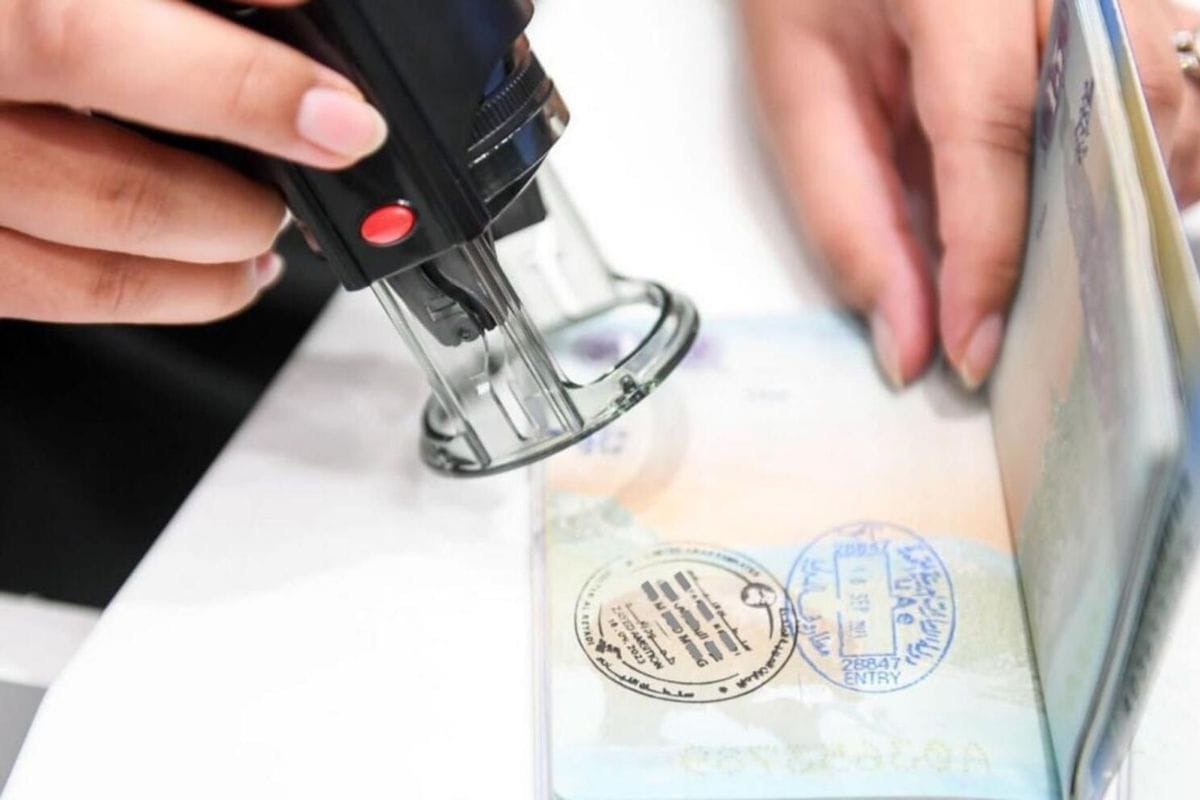
Veteran Imams, Muezzins, Religious scholars
His Highness Sheikh Hamdan bin Mohammed bin Rashid Al Maktoum, Crown Prince of Dubai and Chairman of The Executive Council of Dubai, issued an order granting golden visas to imams, preachers, muezzins, Muftis, and religious scholars who have served in the emirate for over 20 years. Additionally, directives were issued to provide them with financial rewards, recognizing their contributions in sharing Islamic teachings, promoting tolerance, and spreading its true message.
Exceptional Educators in Private Education Institutions
Dubai introduced Golden Visas for exceptional educators in the private education sector, recognizing their significant contributions to student success and community impact. This initiative aligns with the Education 33 strategy, aiming to attract and retain outstanding teaching talent. Eligible educators include school principals, teachers, and higher education faculty who have demonstrated excellence and innovation in education.
Major Milestones Achieved in 2024
Dubai has always been synonymous with ambition, innovation, and groundbreaking developments. In 2024, the city once again captured global attention by announcing several transformative projects that are set to redefine urban living, sustainability, and tourism.
Middle East's First Drone Delivery System

Dubai has made a remarkable leap into the future of logistics with the launch of the Middle East’s first drone delivery system at Dubai Silicon Oasis (DSO). The system’s first successful delivery from Rochester Institute of Technology-Dubai signals the city's commitment to transforming logistics and air transport. With strong public-private collaborations, including key partners like Fakeeh University Hospital and Emirates SkyCargo, this project aligns with Dubai’s Economic Agenda D33. By 2030, the drone system aims to cover 33% of the city, enhancing its role as a hub for innovation and economic growth.
World's First Mobile Floating Fire Station

Dubai Civil Defence has unveiled the world’s first sustainable mobile floating fire station, a pioneering initiative that sets a new standard in maritime safety. This innovative facility is designed to enhance response times and coverage for maritime incidents, ensuring quicker, more efficient firefighting in Dubai’s vital marine zones. The station is 70% more cost-effective than traditional stations, underscoring Dubai’s commitment to both safety and environmental sustainability.
With a target response time of just four minutes, the floating station not only improves safety but also contributes to preserving green spaces by eliminating the need for land-based infrastructure. Built with eco-friendly materials and the latest smart technology, this mobile station embodies Dubai’s leadership in creating safer, more sustainable solutions.
World's First 3D-Printed Electric Abra
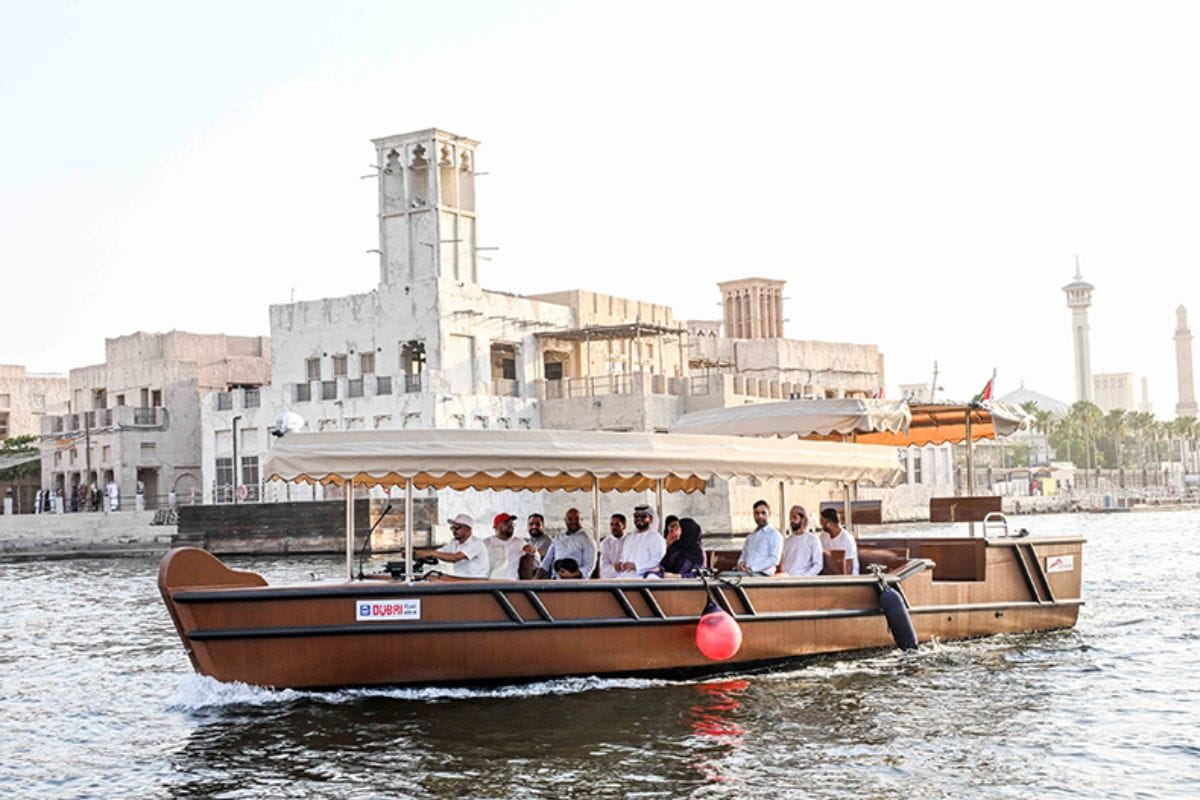
Dubai's Roads and Transport Authority (RTA) has launched the world’s first electric abra made using 3D printing technology, marking a significant step toward sustainable and innovative transport solutions. This electric abra, which can carry 20 passengers, combines traditional design with state-of-the-art technology, reducing manufacturing time by 90% and costs by 30%.
With electric propulsion powered by two 10-kilowatt motors and lithium batteries, the abra will operate on the TR6 line at Sheikh Zayed Road Marine Transport Station. The initiative, developed in collaboration with global partners, aligns with Dubai's 3D printing strategy and the vision to enhance marine transport. Alongside this, RTA is upgrading Dubai Creek's traditional abra stations, enhancing safety and passenger experience.
Smart Skimmer to Clean Waterways

Dubai Municipality has launched an innovative remotely controlled smart skimmer boat, revolutionizing the city’s efforts to maintain clean waterways. Actively removing debris like plastic bottles, tires, and wooden boat parts, the smart skimmer is part of DM’s fleet, which patrols Dubai’s 35 kilometers of waterways daily. With a hydraulic lift capable of carrying up to 1,000 kilograms of waste, this cutting-edge vessel minimizes manual labor and increases efficiency.
Developed after extensive trials, including an adaptation of technology from other countries, the skimmer is tailored to Dubai’s unique conditions. It also features AI technology to identify and collect common waste types, ensuring safe and effective operations. Demonstrated at the Water, Energy, Technology, and Environment Exhibition (WETEX), this smart skimmer represents a significant leap towards sustainability and environmental protection in the emirate.
Ambitious Projects Launched in 2024
Dubai continues to push boundaries with its ambitious projects in 2024, further solidifying its reputation as a global hub for innovation and sustainability.
Tallest Endowment Tower

His Highness Sheikh Mohammed bin Rashid Al Maktoum, Vice President and Prime Minister of the UAE and Ruler of Dubai, reviewed plans for the UAE’s tallest endowment tower, part of the 1 Billion Meals Endowment initiative. Located on Sheikh Zayed Road and costing AED 800 million, this tower will sustainably grow endowment assets to provide a food safety net for millions globally. Developed by Wasl Properties, the tower follows international standards, with returns dedicated to combating hunger. This humanitarian project reflects the UAE’s vision for lasting, impactful charity efforts and aligns with the country’s broader commitment to ending food insecurity worldwide.
13.5 km Multi-Use Track

RTA will build a 13.5 km multi-use track linking Al Sufouh to Dubai Hills. The track will support bicycles, scooters, and pedestrians, with innovative bridges over Sheikh Zayed and Al Khail Roads. The project also involves enhancing four key intersections along Hessa Street, increasing vehicle capacity to 16,000 per hour by 2030. This initiative will serve 5,200 users per hour and benefit 640,000 residents, improving traffic flow and connectivity for diverse communities.
World's Largest, Most Advanced Car Market

Dubai's ambitious "Dubai Car Market" project, spanning 20 million square feet, is set to become the world's largest and most advanced car market. A partnership between Dubai Municipality and DP World, it aims to strengthen Dubai's position as a global automotive trade hub. With services ranging from buying and selling to logistics and financing, the market will boost Dubai's economy, doubling sales to AED 6.8 billion.
World's Largest Logistics Hub
Dubai has unveiled plans for the world's largest logistics hub dedicated to foodstuffs, fruits, and vegetables, as part of its Economic Agenda D33. The project, managed by DP World, aims to enhance Dubai’s global trade position, supporting economic growth and creating investment opportunities. The hub will bolster Dubai’s commercial appeal, aligning with the emirate’s ambition to become one of the world’s top three economic cities by 2033.
Pay-by-Palm System Across Metro Stations

RTA is set to revolutionize Metro access by introducing palm-scanning technology, expected by 2026. Commuters will link their palms to Nol cards, enabling seamless entry through smart gates. This move is part of RTA's shift to an account-based ticketing system, allowing palm scans for Metro, tram, and bus services. Additionally, Nol cards for tourists and students have gained popularity, offering discounts on public transport and various UAE attractions. The new system aims to extend palm-scanning functionality to retail locations, enhancing convenience for daily purchases.
Autonomous Rail Pods

RTA introduced the Floc Duo rail at Gitex Global 2024, an autonomous electric pod system that promises to revolutionize commuting. These pods, which can be assembled on-site without extensive infrastructure, offer a cheap and fast construction solution. Designed with eight seats, the pods adjust dynamically to traffic, operating independently or in coordinated groups. The system aims to ease road congestion and integrate seamlessly with other transport modes, enhancing connectivity across Dubai, especially with the proposed 65km suspended transport network connecting key areas.
Miidle East's First Floating Smart Police Station

Dubai Police announced the launch of the Middle East’s first floating Smart Police Station (SPS), set to begin operations by the end of 2026. The station, part of a AED2 billion initiative, will provide 27 primary services, including filing reports, and 33 additional services in six languages. Operating 24/7 with AI and robotics, the station caters to yacht owners and water sports enthusiasts, easing the load on traditional police centers. This innovative station supports Dubai's vision to be the world’s smartest and happiest city, further enhancing security and public safety at sea.
Dubai Walk Master Plan

His Highness Sheikh Mohammed bin Rashid Al Maktoum, Vice President and Prime Minister of the UAE and Ruler of Dubai, approved the Dubai Walk Master Plan, a groundbreaking initiative to make the city one of the world's most pedestrian-friendly urban spaces. By 2040, a 6,500 km network of interconnected walkways will be created, enhancing accessibility and promoting active lifestyles. The plan includes 110 pedestrian bridges, green spaces, and modern amenities like shaded areas and digital screens. Aligned with the Dubai 2040 Urban Master Plan, this initiative aims to increase pedestrian mobility to 25%, fostering a healthier and more sustainable urban environment.
2024 has been a transformative year for Dubai, characterized by groundbreaking infrastructure projects, progressive legislative reforms, successful public offerings, and a steadfast commitment to sustainable development.
Also Read:
